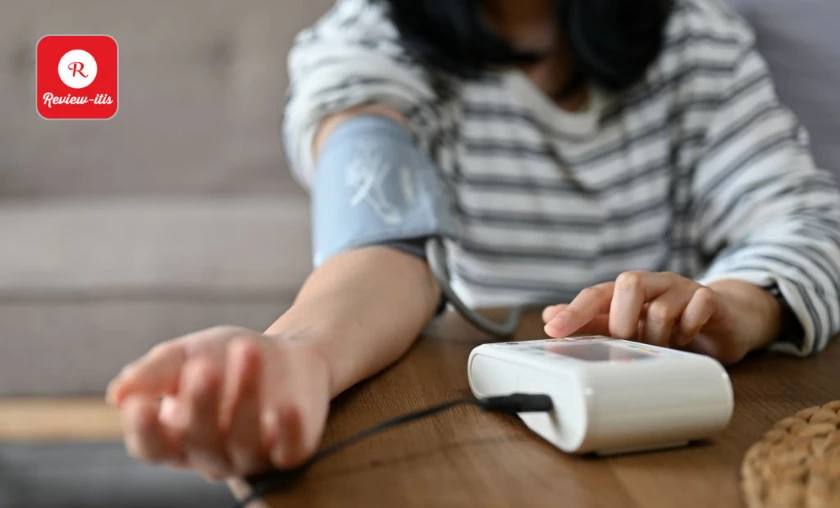Welcome to “Stress Hormones in Health and Illness! A Better Guide.” I’m thrilled to be your trusted companion on this enlightening journey into the captivating world of stress hormones. In this comprehensive guide, we’ll delve into the intricate web of how these hormones impact our well-being, exploring their role in both promoting health and contributing to illnesses.
From understanding the physiological responses they trigger to unraveling the complex interplay between stress and our body’s systems, we’ll equip you with the knowledge and insights needed to navigate the effects of stress hormones on your path to a healthier, happier life.
Get ready to better understand stress hormones and discover practical strategies to optimize your health and well-being.
Table of Contents
Stress Hormones

So, we’ve got these two neuroendocrine systems that have really caught the attention of researchers when it comes to studying stress and health.
First up, we’ve got the sympathetic adrenomedullary (SAM) system. This system is all about releasing two particular catecholamines: epinephrine and norepinephrine. When you’re feeling stressed, these two little guys are quickly secreted into your bloodstream, and boy, do they make their presence known! They seriously affect your cardiovascular system, and they really get that energy flowing.
Let’s move on to the hypothalamic-pituitary-adrenocortical (HPA) system. This system is all about cortisol. When stress comes knocking, cortisol is the one that gets released. It plays the big role in how your body responds to stress.
Sensitivity

We’ve got quite a number of studies that have shown just how sensitive epinephrine secretion can be. Regarding different types of mental stressors. They’ve done these studies both in controlled laboratory settings and out there in the wild, in natural settings. And let me tell you, the results have been fascinating (Frankenhaeuser, 1983, Lundberg, 1984).
On the other hand, norepinephrine’s more concerned with keeping your blood pressure in check & maintaining that sweet homeostasis. When it comes to norepinephrine, it’s tuned into physical demands and how you hold your body.
So, what does this mean? Well, it turns out that among our white-collar workers, who mostly face mental demands, their epinephrine levels shoot up by about 50% while they’re on the job compared to when they’re not working. Quite the increase, I must say!
Gender Differences

Let me take you back to the early 1970s, my friend. Back then, if you can believe it, almost all the studies on stress-hormone responses were focused solely on men. Can you imagine? Tradition and convenience played a big role in this lopsided approach.
You know, those pesky biological rhythms of women were considered a real nuisance, and of course, there was the concern about potentially harming pregnant women. And get this, there was this general assumption that men and women would respond in pretty much the same way to stress. But you know what they say about assumptions, right?
Buckle up because things took an interesting turn when researchers in Marianne Frankenhaeuser’s group over in Stockholm decided to shake things up. They started comparing the stress responses of men and women under standardized conditions, and let me tell you, they found some systematic differences. The times were changing, my friend!
Health Implications

They’ve been primarily associated with the cardiovascular system and the not-so-fun disorders that can come along with it, like hypertension, myocardial infarction (heart attacks), and stroke. Folkow (1982) had quite an interesting model to explain how elevated blood pressure responses could lead to long-term hypertension.
It all starts with those blood vessels. Over time, as the blood pressure keeps rising, the artery walls begin to thicken, and the blood vessels narrow. And what does that do? It increases the peripheral resistance in the cardiovascular system. Not a great situation to be in.
But here’s the kicker: those catecholamines also play a role in this whole mess. They contribute to that elevated blood pressure, making things even more challenging. It’s like a tag team of trouble for the poor cardiovascular system.
Health-Promoting or Health-Damaging Effects?

Let me tell you about these responses to stress that have played a crucial role in our survival, both for us humans and our animal counterparts. They’re all about protecting our precious bodies, you see. When stress comes knocking, we’ve got some acute responses that kick into action. Brace yourself for this: our blood pressure shoots up, our heart rate goes into overdrive, and guess what?
We start redistributing that blood of ours. It’s like a little internal traffic control, as we prioritize sending that blood from our gastrointestinal system straight to our hard-working muscles and brains. And that’s not all! We release some much-needed energy in the form of fat and glucose to keep things going. Did I mention that our reproductive functions take a little break during these times? It’s like they go on a mini-vacation.
We also experience increased blood coagulation, you know, to make sure we don’t bleed out when things get tough. But here’s an interesting one: our pain sensitivity takes a backseat, and we become superhumans, tolerating more than we normally would. And hey, let’s remember those cognitive changes that come along for the ride. It’s like our brains go into a different mode, preparing us for whatever challenges lie ahead. These responses, my friend, are key players in helping us cope and come out on top.
Conclusion
Finding that oh-so-important balance between activation and rest is absolutely key for our overall health and survival. You see, our incredible human bodies can handle those short-term demands like champions. But when we take the long view, we really need those rest and recuperation periods to kickstart those anabolic processes.
And guess what? It’s not just about those little breaks throughout the day, like enjoying a lunch break or giving ourselves a well-deserved evening of relaxation. We also need to make time for those longer periods, like weekends or even indulging in a fantastic vacation.
Trust me, they’re worth it. Oh, and here’s a little secret to unlocking even more benefits: regular, moderate physical exercise. It’s like a secret weapon that contributes to those anabolic effects and makes us more flexible, both physically and mentally.
So, my friend, remember to find that balance, embrace those moments of rest, and let your body and mind thrive. It is all about taking care of yourself and living your best life.
FAQs
What are stress hormones, & how do they impact our health and well-being?
Let’s dive into the fascinating world of stress hormones, shall we? Stress hormones are chemical messengers produced by our body in response to stress.
They play a vital role in our physiological responses, affecting various systems in our body, including cardiovascular, immune, and metabolic systems.
Understanding how these hormones impact our health and well-being is key to navigating the complex realm of stress-related illnesses.
How do stress hormones contribute to the development of health issues and illnesses?
Ah, the intricate connection between stress hormones and health issues. When stress becomes chronic or overwhelming, the excessive release of stress hormones can wreak havoc on our bodies.
They can contribute to the development of conditions like hypertension, cardiovascular diseases, weakened immune systems, metabolic disorders, and even mental health issues.
It’s important to grasp how these hormones influence our overall health to proactively manage stress-related illnesses.
Can stress hormones be beneficial in any way?
Believe it or not, stress hormones aren’t all bad guys. In the right context, they serve a purpose.
When faced with acute stress, these hormones prepare us for action, boosting our energy levels, sharpening our focus, and enhancing our performance. It’s like a temporary superpower that helps us tackle challenges head-on.
However, when stress becomes chronic or excessive, that’s when the trouble starts. So, understanding the delicate balance of stress hormone effects is crucial.
How can we manage stress hormones to promote better health?
Ah, the million-dollar question: how can we manage those stress hormones and promote better health? Well, my friend, it’s all about finding effective stress management techniques.
Engaging in regular physical exercise, practicing relaxation techniques like meditation or deep breathing, maintaining a healthy lifestyle with proper nutrition and sleep, and cultivating a strong support network are all powerful ways to keep those stress hormones in check. It is about finding what works for you & prioritizing self-care.
Are there any natural remedies or interventions that can help regulate stress hormone levels?
You bet there are! Nature has bestowed upon us some incredible remedies to help regulate stress hormone levels. Certain herbs like chamomile, lavender, and ashwagandha have been known for their calming effects.
Additionally, activities like spending time in nature, engaging in hobbies, enjoying a good laugh, and practicing mindfulness can work wonders in promoting a healthier hormonal balance.
It’s about exploring these natural interventions and finding what resonates with you on your journey to well-being.
For more amazing articles related to Health, Checkout Now with a click
To read more similar articles, click here.
Thanks for visiting our Website. If you appreciate our work, kindly show us some support in our comments section. 🙂